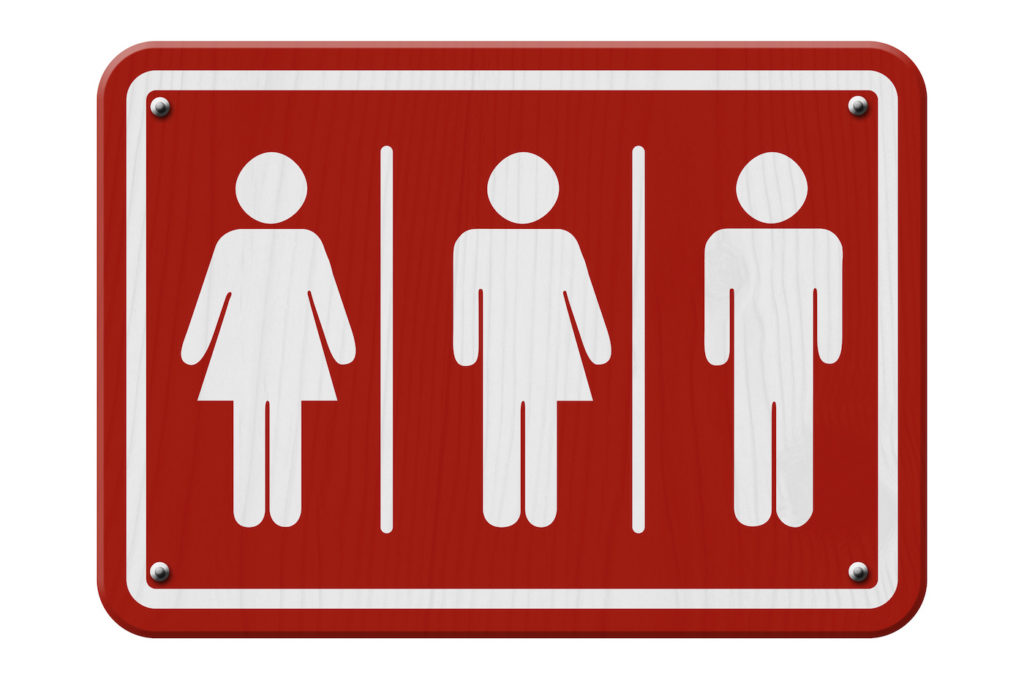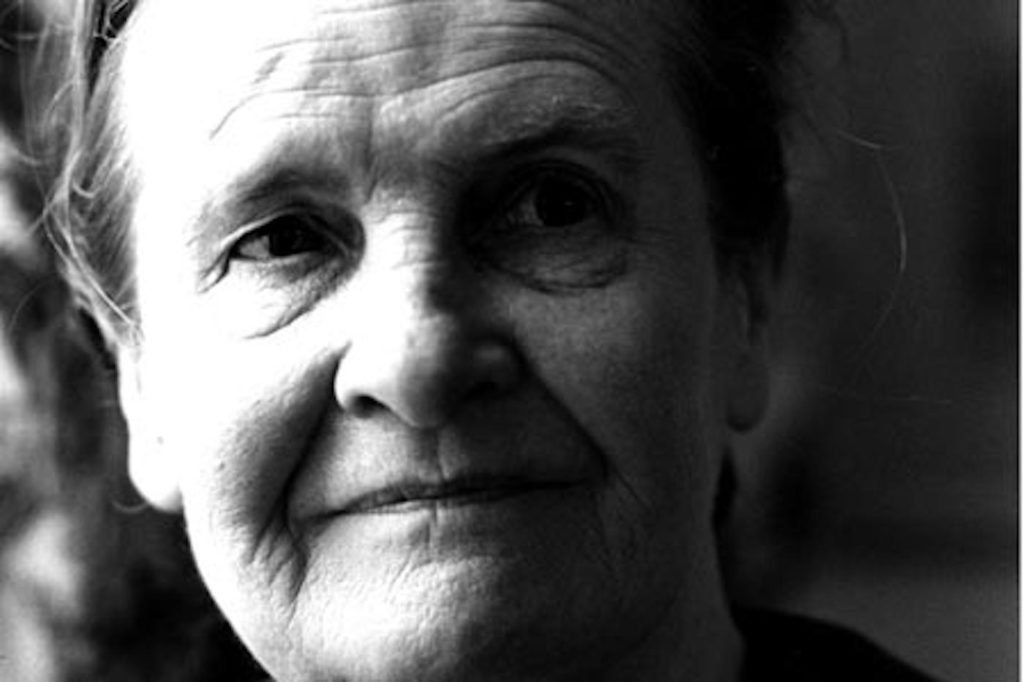The Solid, Slightly Out-of-Season Christian Case for Religious Liberty

Robert Wilken’s new book convincingly demonstrates that the concept of religious freedom has its origins in Christianity. Unfortunately, in today’s political climate, that may actually be viewed as an argument against religious freedom.
The Abandonment of Professional Ethics, Individual Nurses, and the Patient

The American Nurses Association Draft Position Statement on nursing and assisted suicide completely upends the proper role of nurses, leaving those who object without support.
Immigration Policy and the Consent of the Governed

Today, the fanaticism of activists, the ambitions of elite political operatives, and the passive passions of an apolitical public combine to determine our nation’s immigration policy.
The Medical Scandal that the Mainstream Media Ignores

Over the past few years, media stories about “transgender” kids have become increasingly common, but critical questions are seldom asked. These children’s identities are portrayed as immutable, while the ideologically-driven medical practices solidifying them are not investigated. Why won’t they report the truth: that these children and their families are victims of ruthless medical practices with no basis in science?
Pro-Life Welfare is a Bad Idea

Rather than focusing on wealth transfers to the poor, we should seek to cultivate conditions that enable people to flourish through their own actions and relationships. When evaluating policies, we should ask: Does it give people an incentive to stay together, or does it subsidize their breaking apart? Does it encourage one particular kind of childcare, or does it enable all mothers to better care for their children in the way that they choose?
Faith, Reason, and Leo Strauss

Both believing and non-believing students of Strauss will find Leo Strauss and His Catholic Readers rewarding.
What American Conservatives Can Learn from Canada

Steven Harper argues that conservative politicians should be primarily concerned with protecting their own citizens. It is time for conservative politicians to distinguish themselves from those on the right and left who have taken up globalism. Republicans have to recognize, as Trump did, that the essential goal of conservative policy is to help the “Somewheres” facing the challenges created by a global and internationalist economy.
When Reason Does Not Suffice: Why Our Culture Still Accepts Abortion

The pro-life movement is really asking for a moral revolution. If the child lives, the mother’s life will not be the same, because if we accept the principles that allow the child to live, none of our lives can be the same. There is no way to guarantee a world safe for the unborn child that is also a world of total sexual and economic autonomy. In any world in which autonomy is the highest ideal, the child—that incarnate sign of our dependence and existential poverty—must go.
Anti-Discrimination “Equality” Law Exemptions Do Not Lead to Fairness for All: An International Perspective

Although exemptions are often billed as a compromise, the evidence suggests that they will never be enough to satisfy those who think religious believers are discriminating and getting away with it. The “compromise” soon becomes a zero-sum game with only one winner.
Striving for Digital Minimalism: Why We Need a Human-Centric Approach to Technology

Technology promises to solve our problems, but it also creates new ones. That’s because we have failed to apply human-centric approaches to technology. We think in terms of productivity instead of human flourishing; connectivity instead of community. As a result, our tech use leaves us worse off than we were before—less free, less rested, less peaceful.
We Were Parents

When my wife and I mourned the miscarriage of our child, we were not mourning the loss of “potential life.” Hope for a potential life is what we had when we dreamed and prayed for pregnancy; hope for the potential of an existing life is what we had during the pregnancy. When our pregnancy ended, we mourned the loss of a life, of an irreplaceable human person whose particular genetic composition will never be repeated.
Catholic Thought and the Challenges of Our Time

The early Church saw challenges to truths about God, the Reformation-era Church saw challenges to truths about the Church herself, and today’s Church is confronted by challenges to truths about man—the being made in the image and likeness of God whom the Church is tasked with protecting. This essay is based on Ryan T. Anderson’s inaugural lecture as the St. John Paul II Teaching Fellow at The University of Dallas.
Of The Diversity Delusion, Delivered

Heather Mac Donald’s The Diversity Delusion is right on point, but it is also biting in tone, brimming with exasperation and anger. Mac Donald is at her finest when she offers an ode to the humanities, reminding the reader of the wonder and sublimity in Shakespeare and Bach, the truth and timelessness in Homer and Plato.
Whither Humane Economics? In Defense of Wonder and Admiration in Natural Science

What is needed for a humane economics is not theological economics, but a rediscovery of the call to understand the world through an economic science replete with wonder and admiration—something missing in contemporary economics as much as in the drab theology of many ethicists. Properly delineated, this is not a rejection of ethics in economics, but a recovery of the normative dimension of reality.
Can Hatred of Christians Lead to Support of Sexual Minorities?

We generally believe that those who support LGBT rights dislike Christians because of their opposition to progressive sexual values. But a new study suggests that animosity toward Christians actually causes support for sexual minorities.
Humanizing the Venezuelan Collapse: Beyond Economic Indicators and Policy Briefs

As a Venezuelan and an economist, I believe we economists sometimes need to go beyond economic indicators. We need to speak from our hearts about our experiences. Only by doing this can we truly communicate the social implications of an economic collapse of this magnitude. No economic indicator could ever do justice to the depth of the human suffering taking place in Venezuela today. Venezuelans are suffering in ways most people in developed nations could not even imagine.
Donald Trump Was Elected Because Elites Have Failed the Working Class

American politics is suffering from a failure of empathy. In particular, the country’s elites have failed to empathize with the working class. Over the last few generations, America’s elites have stood in the way of the working class’s pursuit of the American dream by devising, and then by tenaciously defending, policies that impede upward economic mobility.
A City upon a Hill: Nationalism, Religion, and the Making of an American Myth

In his new book, Daniel T. Rodgers argues that the myth inspired by John Winthrop’s famous seventeenth-century “city upon a hill” metaphor was actually a product of the conflict between the Soviet Union and the United States in the Cold War. Winthrop’s sermon was largely forgotten until it was put to use for nationalistic purposes to inspire the nation against global Communism.
The Economics and Ethics of “Just Wages”

As with the concept of the just price, the idea of the just wage combines the subjectivity of the diverse needs and preferences of individuals with the objective demands of justice. The teaching of the Catholic Church on the just wage avoids both the Scylla of economism and the Charybdis of moralism.
Thomas Aquinas on the Just Price

St. Thomas Aquinas’s treatment of the question of the just price is often misunderstood by both Catholic integralists and classical liberals. These misunderstandings deprive us of lessons that could otherwise help us combine the goods of freedom and virtue as individuals and in society.
Outrage Mobs Might Be More Forgiving If They Believed in Hell

Without a Christian framework, but with a strong sense of sin, seemingly minor wrongs and slights are seen as representative expressions of the injustices of society as a whole. But there is no one to grant absolution to the repentant, or to redeem the world from its fallen state. Each wrong is indelible, and so there is only sin and punishment. Forgiveness becomes impossible when every discrete wrong is bundled into a secularized version of original sin.
Elizabeth Anscombe’s Philosophy of the Human Person

Elizabeth Anscombe’s philosophical investigation of man’s spiritual nature offers a much-needed antidote to the materialism of our times. For Anscombe, to search for the spiritual is not to look somewhere obscure, but to look at the everyday facts of human life, institutions, and history.
Taking a Closer Look at Diversity on College Campuses

There is a penchant on today’s college campuses for sacrificing hard questions at the altar of political correctness. The university’s repudiation of the Socratic method and preoccupation with genderless pronouns, microaggressions, and safe spaces is not benign. The university should be a sacred place where no question, regardless of its potential to offend, is deemed off-limits.
Politicizing Pediatrics: How the AAP’s Transgender Guidelines Undermine Trust in Medical Authority

The five-year-old boy who transitions to identify as a girl has taken a major step on a road that may lead to treatment with cross-sex hormones, castration, and infertility. Most five-year-old boys who say they are girls will not persist: fifteen years later, in the great majority of cases, that boy will say he is a man, not a woman. But the American Academy of Pediatrics is now on record prioritizing the opinion of a five-year-old over the considered judgment of the child’s parents.




